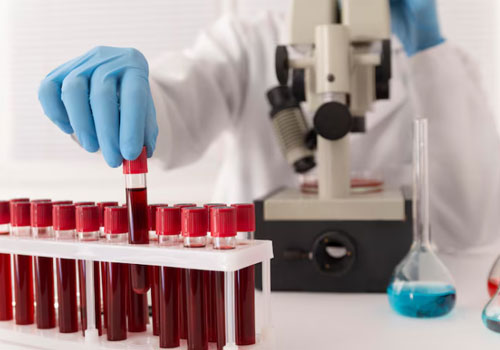| |
|
|
Serology services involve the analysis of blood serum to detect antibodies, antigens, or other substances related to infectious diseases, autoimmune disorders, and other medical conditions. These services play a vital role in diagnosing infections, monitoring immune responses, and guiding treatment decisions. Here are some key aspects of serology services:
Serology services are widely used for diagnosing infectious diseases by detecting specific antibodies produced by the immune system in response to pathogens such as viruses, bacteria, fungi, and parasites. Common infectious diseases tested using serology include:
Hepatitis, HIV/AIDS, herpes, cytomegalovirus (CMV), Epstein-Barr virus (EBV), and influenza.
Bacterial infections: Lyme disease, syphilis, tuberculosis, and certain sexually transmitted infections (STIs) such as chlamydia and gonorrhea.
Parasitic infections: Malaria, toxoplasmosis, and schistosomiasis.
Serology services help monitor immune responses to vaccination or exposure to infectious agents. For example, measuring antibody titers after vaccination can assess vaccine effectiveness, while seroconversion (the development of detectable antibodies) indicates recent infection or immunity to certain diseases.
Serology services play a crucial role in diagnosing autoimmune diseases by detecting autoantibodies that target the body's own tissues. Common autoimmune diseases tested using serology include:
Testing for rheumatoid factor (RF) and anti-cyclic citrullinated peptide (anti-CCP) antibodies.
Testing for antinuclear antibodies (ANA), anti-double-stranded DNA (anti-dsDNA) antibodies, and anti-Smith antibodies.
Testing for thyroid autoantibodies such as anti-thyroid peroxidase (anti-TPO) and anti-thyroglobulin antibodies.
Serology services are used to assess compatibility between organ donors and recipients by detecting human leukocyte antigen (HLA) antibodies, which can cause transplant rejection.
Serology laboratories adhere to strict quality control measures to ensure accurate and reliable results. This includes standardized testing protocols, proficiency testing, validation of assays, and adherence to regulatory guidelines.
Serology services play a critical role in surveillance and outbreak investigations of emerging infectious diseases, enabling early detection, containment, and control of outbreaks.
With advancements in technology, some serological tests can be performed at the point of care, providing rapid results for timely diagnosis and management of infectious diseases, especially in resource-limited settings or during outbreaks.

|
|
|
|
|